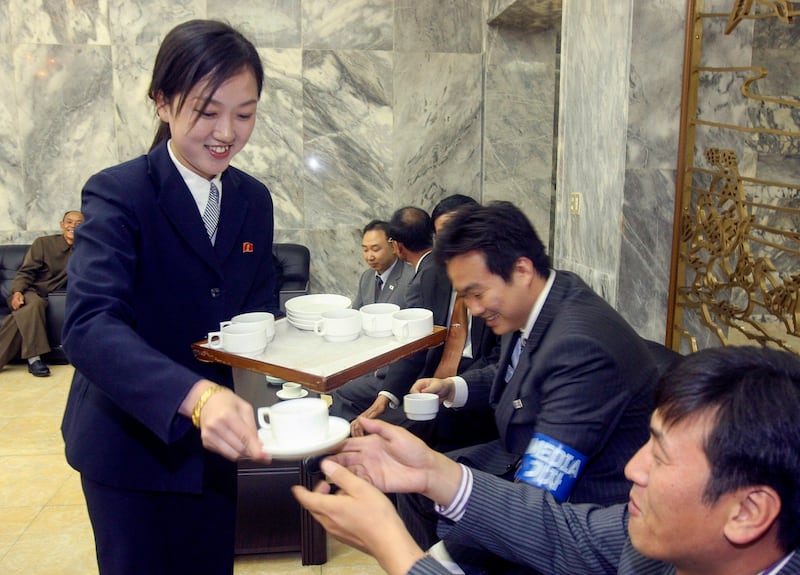Though coffee has long been derided as a symbol of imperialist capitalism, privileged North Koreans are developing a taste for it, residents in the country told Radio Free Asia.
“These days, drinking coffee has become a trend among local officials,” a resident in the eastern province of South Hamgyong told RFA Korean on condition of anonymity for security reasons.
“Until recently, coffee was perceived as a ‘luxury product symbolizing capitalism’ and incompatible with socialism.”
For years, coffee was only available in hotels catering to foreign tourists, but it started to appear in marketplaces in the 2010s. Now coffee shops have sprung up in Pyongyang and other cities, the resident said.
Coffee is expensive for the average North Korean, so it is drunk mostly by the wealthy elite.
But the masses are learning about coffee culture through illegal foreign movies smuggled into the country, said a resident from the northeastern province of North Hamgyong.
“Some people will drink coffee on holidays to be a little more stylish, but it’s a little too early for the public to be drinking coffee regularly,” he said.
Tea is also unusual in North Korea because the colder climate isn’t conducive to growing tea bushes. Instead, North Koreans typically consume soju, a distilled drink that tastes similar to vodka.
“In rural areas, a cup of coffee costs more than a bottle of alcohol, so ordinary residents do not dare to drink it,” the first source said. “But officials and rich people drink coffee every day.”

A bottle of soju costs less than 3,000 won (35 US cents) while a cup of coffee is between 3,000 and 5,000 won (35 to 60 cents) – for North Koreans. Foreign tourists are charged around US$5 per cup, about 14 times the cost of soju.
Ground coffee, meanwhile, costs between 50,000 to 80,000 won ($6-10) per 200 grams (7 ounces). Adding sugar at 20,000 won ($2.35) per kilogram (2.2 pounds) makes it even more unaffordable.
Favored as a bribe
Coffee is also starting to be used as a bribe, replacing the traditional carton of cigarettes, the North Hamgyong resident said.
“Officials seem to be more interested in coffee these days because cigarettes are bad for your health,” he said.
Recently, the first resident said that he was asked by a city cadre section officer to be treated to coffee and sugar.
“Although I thought it was a waste of money, I bought it without saying anything because I might need his help at some point,” he said.
Though there are North Korean coffee processing companies, as with most products, the rich prefer coffee produced abroad, the second resident said.
“Domestic coffee containing ginseng is good, but officials prefer coffee from Brazil or South Korea,” he said, adding that he recently had bribed an official with the South American brew so that his son could get a recommendation to attend college.
When the now-shuttered inter-Korean Kaesong Industrial Complex was in operation, the South Korean companies provided individually wrapped instant coffee “stick” pouches to North Korean workers.
These proved to be very popular and would often find their way into local markets along with chocopies and other South Korean treats that the workers could sneak out of the factory breakrooms.
Translated by Claire S. Lee. Edited by Eugene Whong and Malcolm Foster.
